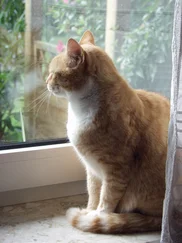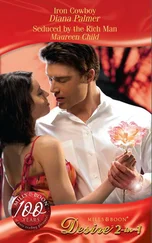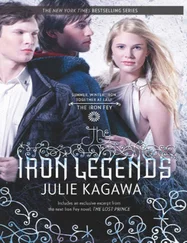Or I get up and switch on the television. On one channel football. On the other a black man clasping his hands over the Bible, preaching to me in a language I cannot even put a name to. This is the door I open to let the world flood in, and this is the world that comes to me. It is like peering down a pipe.
Three years ago I had a burglary (you may remember, I carry, but before they left they tipped out every drawer, slashed every mattress, smashed crockery, broke bottles, swept all the food in the pantry on to the floor.
'Why do they behave like this?' I asked the detective in bewilderment – 'What good does it do them?'
'It's the way they are,' he replied. 'Animals.'
After that I had bars installed on all the windows. They were fitted by a plump Indian man. After he had screwed the bars into the frames he filled in the head of each screw with glue. 'So that they can't be unscrewed,' he explained. When he left he said, 'Now you are safe, 'and patted my hand.
'Now you are safe.' The words of a zookeeper as he locks the door for the night on some wingless, ineffectual bird. A dodo: the last of the dodos, old, past egg-laying. 'Now you are safe.' Locked up while hungry predators prowl outside. A dodo quaking in her nest, sleeping with one eye open, greeting the dawn haggard. But safe, safe in her cage, the bars intact, the wires intact: the telephone wire, down which she may cry for help in a last extremity, the television wire, down which conies the light of the world, the aerial wire, which calls in music from the stars.
Television. Why do I watch it? The parade of politicians every evening: I have only to see the heavy, blank faces so familiar since childhood to feel gloom and nausea. The bullies in the last row of school-desks, raw-boned, lumpish boys, grown up now and promoted to rule the land. They with their fathers and mothers, their aunts and uncles, their brothers and sisters: a locust horde, a plague of black locusts infesting the country, munching without cease, devouring lives. Why, in a spirit of horror and loathing, do I watch them? Why do I let them into the house? Because the reign of the locust family is the truth of South Africa, and the truth is what makes me sick? Legitimacy they no longer trouble to claim. Reason they have shrugged off. What absorbs them is power and the stupor of power. Eating and talking, munching lives, belching. Slow, heavy-bellied talk. Sitting in a circle, debating ponderously, issuing decrees like hammer-blows: death, death, death. Untroubled by the stench. Heavy eyelids, piggish eyes, shrewd with the shrewdness of generations of peasants. Plotting against each other too: slow peasant plots that take decades to mature. The new Africans, pot-bellied, heavy-jowled men on their stools of office: Cetshwayo, Dingane in white skins. Pressing downward: their power in their weight. Huge bull-testicles pressing down on their wives, their children, pressing the spark out of them. In their own hearts no spark of fire left. Sluggish hearts, heavy as blood-pudding.
And their message stupidly unchanging, stupidly forever the same. Their feat, after years of etymological meditation on the word, to have raised stupidity to a virtue. To stupefy: to deprive of feeling; to benumb, deaden; to stun with amazement. Stupor: insensibility, apathy, torpor of mind. Stupid: dulled in the faculties, indifferent, destitute of thought or feeling. From stupere to be stunned, astounded. A gradient from stupid to stunned to astonished, to be turned to stone. The message: that the message never changes. A message that: turns people to stone.
We watch as birds watch snakes, fascinated by what is about to devour us. Fascination: the homage we pay to our death. Between the hours of eight and nine we assemble and they show themselves to us. A ritual manifestation, like the processions of hooded bishops during Franco's war. A thanatophany: showing us our death. Viva la muerte! their cry, their threat. Death to the young. Death to life. Boars that devour their offspring. The Boar War.
I say to myself that I am watching not the lie but the space behind the lie where the truth ought to be. But is it true?
I dozed (it is still yesterday I am writing about), read, dozed again. I made tea, put on a record. Bar by bar the Goldberg Variations erected themselves in the air. I crossed to the window. It was nearly dark. Against the garage wall the man was squatting, smoking, the point of his cigarette glowing. Perhaps he saw me, perhaps not. Together we listened.
At this moment, I thought, I know how he feels as surely as if he and I were making love.
Though it came unbidden, though it filled me with distaste, I considered the thought without flinching. He and I pressed breast to breast, eyes closed, going down the old road together. Unlikely companions! Like travelling in a bus in Sicily, pressed face to face, body to body against a strange man. Perhaps that is what the afterlife will be like: not a lobby with armchairs and music but a great crowded bus on its way from nowhere to nowhere. Standing room only: on one's feet forever, crushed against strangers. The air thick, stale, full of sighs and murmurs: Sorry, sorry. Promiscuous contact. Forever under the gaze of others. An end to private life.
Across the courtyard he squatted, smoking, listening. Two souls, his and mine, twined together, ravished. Like insects mating tail to tail, facing away from each other, still except for a pulsing of the thorax that might be mistaken for mere breathing. Stillness and ecstasy.
He flicked his cigarette away. A burst of sparks as it hit the ground, then darkness.
This house, I thought. This world. This house, this music. This.
'This is my daughter,' I said. 'The one I told you about, who lives in America.' And through his eyes regarded you in the photograph: a pleasant-faced, smiling woman in her thirties, against a field of green, raising a hand to her hair, which is blowing in the wind. Confident. That is what you have now: the look of a woman who has found herself.
'These are their children.'
Two little boys in caps and coats and boots and gloves standing to attention beside a snowman, waiting for the shutter to click.
A pause. We were sitting at the kitchen table. I had set tea before him, and Marie biscuits. Marie biscuits: food for old people, for the toothless.
'There is something 1 would like you, to do for me if I die. There are some papers I want to send to my daughter. But after the event. That is the important part. That Is why I cannot send them myself. I will do everything else. I will make them up into a parcel with the right stamps on it. All you will have to do will be to hand the parcel, over the counter at the post office. Will you do that for me?'
He shifted uncomfortably.
'It is not a favour I would ask if I could help it. But there is no other way. 1 will not be here.'
'Can't you ask someone else?' he said.
'Yes, I can. But I am asking you. These are private papers, private letters. They are my daughter's inheritance. They are all I can give her, all she will accept, coming from this country. I don't want them opened and read by anyone else.'
Private papers. These papers, these words that either you read now or else will never read. Will they reach you? Have they reached you? Two ways of asking the same question, a question to which I will never know the answer, never. To me this letter will forever be words committed to the waves: a message in a bottle with the stamps of the Republic of South Africa on it, and your name.
'I don't know,' said the man, the messenger, playing with his spoon.
He will make no promise. And even if he promises, he will do, finally, what he likes. Last instructions, never enforceable. For the dead are not persons. That is the law: all contracts lapse. The dead cannot be cheated, cannot be betrayed, unless you carry them with you in your heart and do the crime there.
Читать дальше












